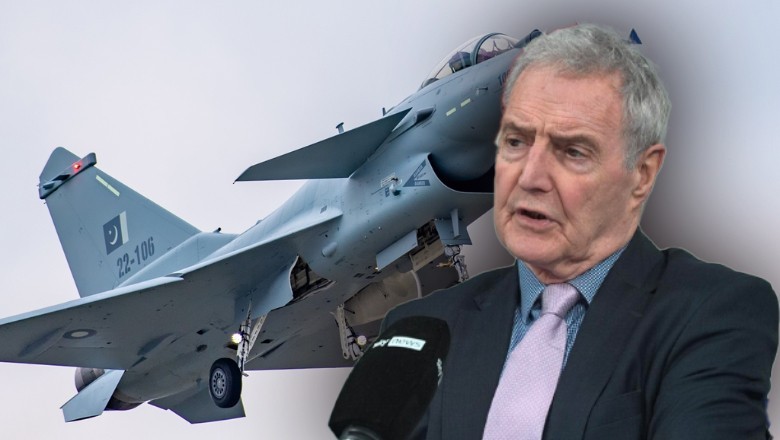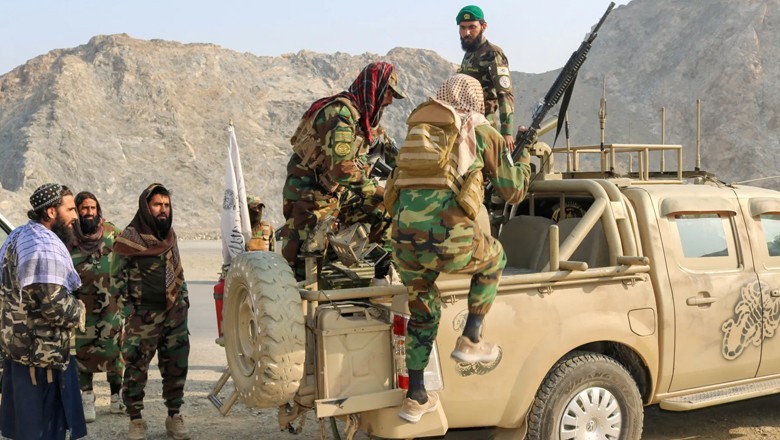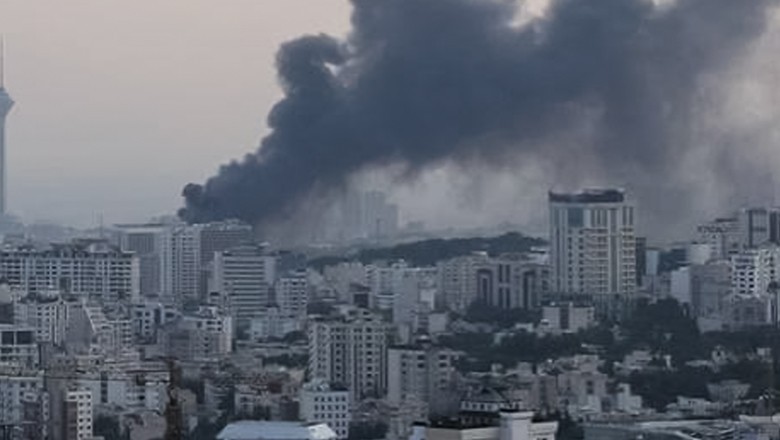Pakistan’s technical capabilities took Indians by surprise: Professor Clarke

Web Desk
|
11 May 2025
British security and defence analyst Professor Michael Clarke stated that the Chinese-manufactured J-10C, piloted by Pakistani forces, demonstrated stunning performance compared to India's crashed French-made Rafale warplanes.
A wave of international commentary has followed the recent ceasefire between Pakistan and India, with prominent security analysts highlighting Pakistan’s military response and technological capabilities as key factors in de-escalating tensions.
Security and defence analyst Professor Michael Clarke noted that the Chinese-manufactured J-10C fighter jet, used by Pakistan, delivered a surprisingly strong performance, even outperforming the French-made Rafale jets deployed by India.
“The Indians might have been surprised by the hardware that the Pakistanis brought to bear,” he said, “because as we’re now discovering they’ve used quite a lot of their Chinese-based technology, and the attention at the moment is focused on the J-10 fighter.”
He further added that Pakistan used J-10 fighter to take down Rafale jets, stating, “the Pakistanis have used their HQ-9, anti-aircraft missiles, which again may have been rather effective.”
“So I think the Indians might have been surprised by the technical abilities that Pakistan seems to have absorbed with their Chinese equipment, but they won’t have been surprised by the bellicosity of [Gen Asim] Munir because they rather expected that,” Clarke said.
According to Clarke, India aimed to send a strong message to Pakistan’s Army Chief, General Asim Munir, and demonstrated its military readiness by deploying a carrier battle group from its Western fleet.
Read more: Indian travel platforms boycott Turkiye, China, Azerbaijan for supporting Pakistan
“It’s sitting only 300 miles off Karachi, which is a sort of threat to go in for a more general war, unless the Pakistanis found a way of backing down from this position. Unfortunately, the international community has given them a line that they can both top out at,” he said.
Meanwhile, American journalist Nick Robertson, International Diplomatic Editor at CNN, disclosed dramatic behind-the-scenes developments during the crisis. In a televised interview, Robertson revealed that multiple global efforts to mediate a ceasefire initially failed.
Robertson claimed that Pakistan responded by launching a wave of unstoppable missiles on Indian targets, which he said left India with no choice but to seek negotiations.
It was Pakistan’s powerful missile response that forced India to retreat and return to the negotiating table, he asserted.
Adding to the discourse, BBC South Asia Regional Editor Anberson Utherjohn stated that the recent escalation had made it clear that Pakistan's air power now surpasses that of India.
Anberson Uther John further remarked that while India may try to frame its actions as successful incursions despite Pakistan's nuclear deterrence, the reality is that its broader strategic objectives were not achieved.
India’s plan to cause irreparable damage to Pakistan was effectively foiled, he concluded.












Comments
0 comment